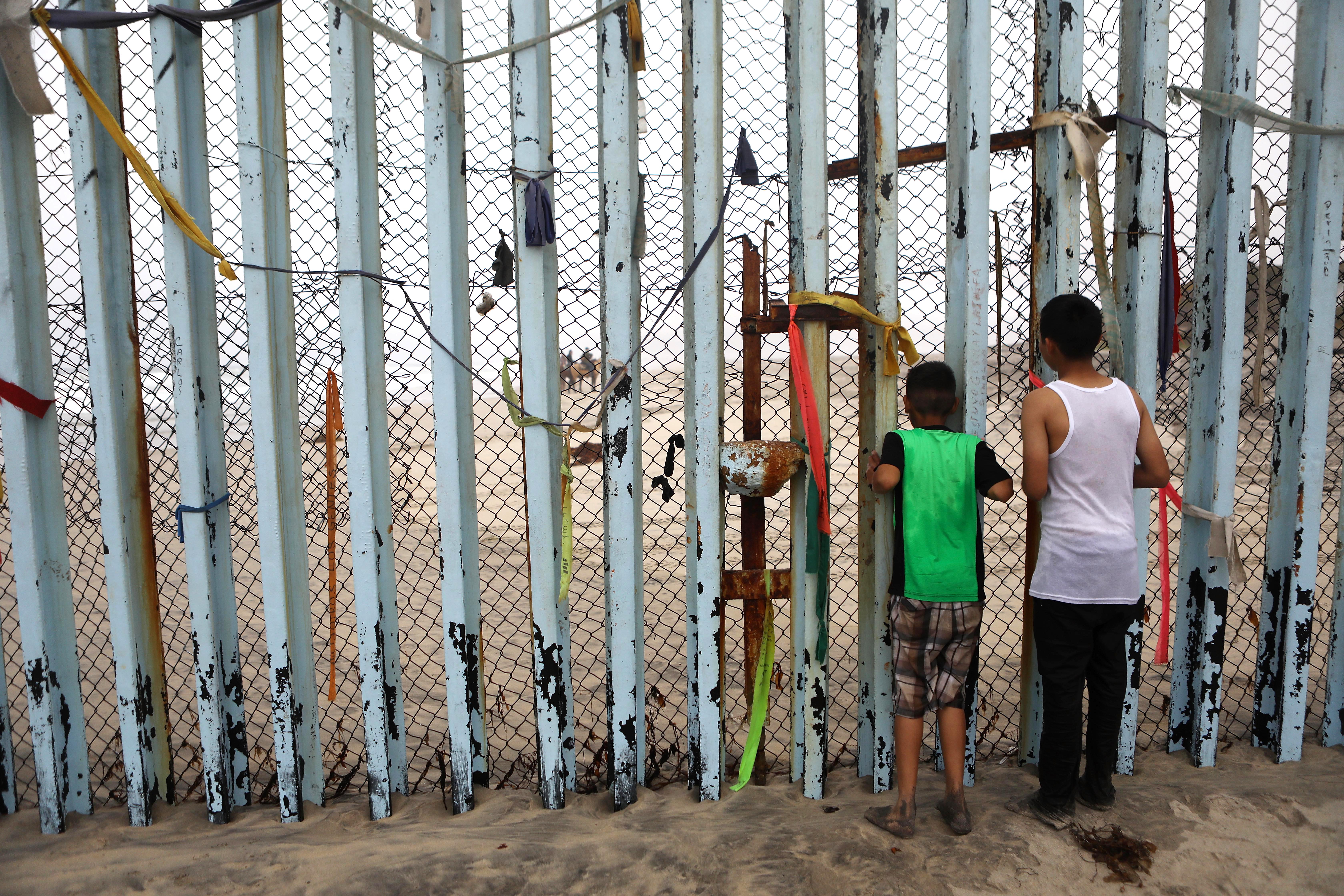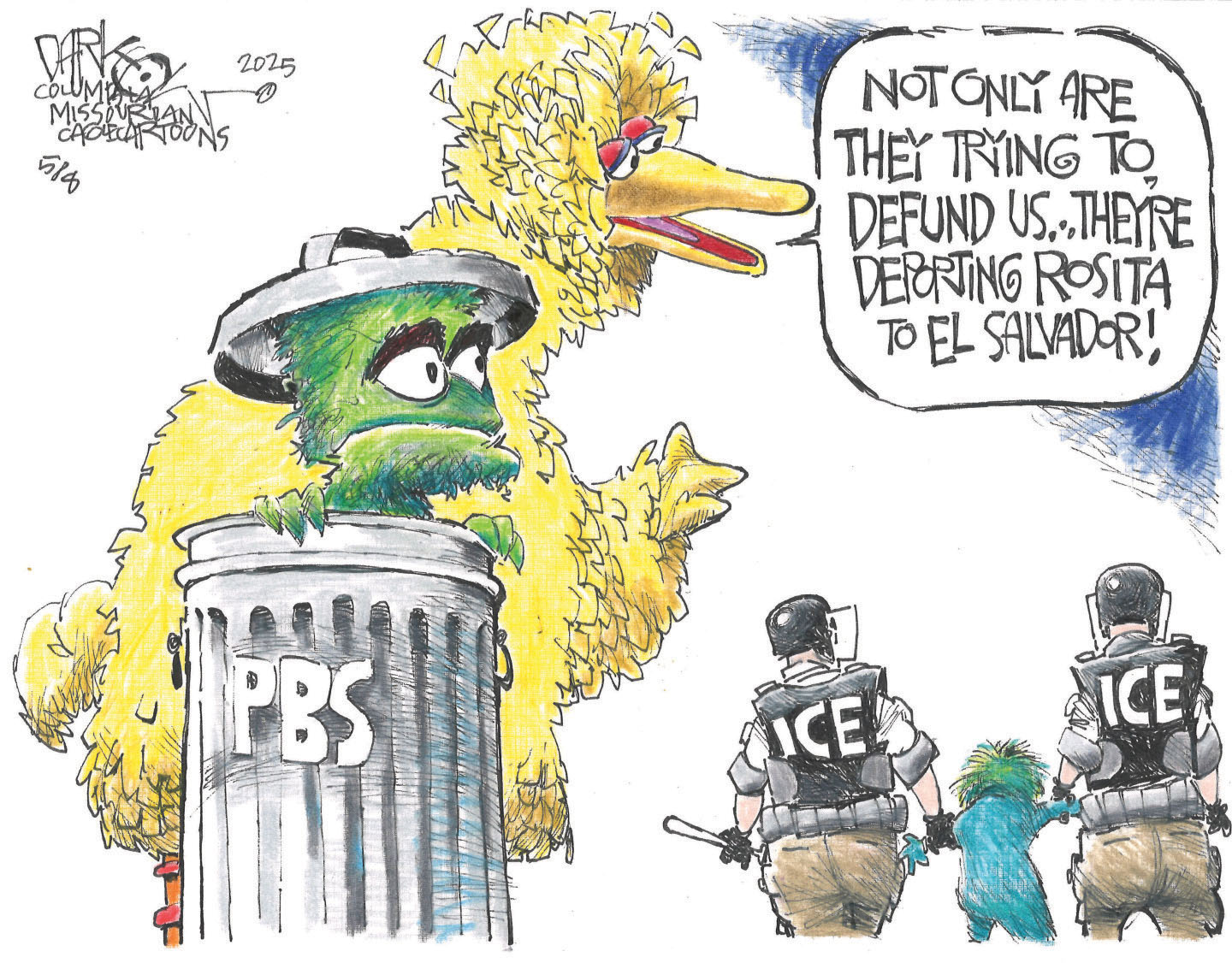Untangling 4 immigration controversies
Not all the horrible stories coming from the U.S.-Mexico border have anything to do with Trump. But the one Trump is complaining about is his alone.


There's been a lot of fulmination recently over what is happening on America's border with Mexico.
Some people are furious over the Health and Human Services Department's (DHS) Office of Refugee Resettlement losing track of nearly 1,500 immigrant children, and others by Immigration and Customs Enforcement (ICE) enacting the Trump administration's de facto policy of separating migrant children from their parents at the border. President Trump, meanwhile, bizarrely and falsely appeared to blame Democrats and a nonexistent "horrible law" for his administration's policy of separating children from their parents.
Cut through the noise. Here's what you need to know:
Subscribe to The Week
Escape your echo chamber. Get the facts behind the news, plus analysis from multiple perspectives.

Sign up for The Week's Free Newsletters
From our morning news briefing to a weekly Good News Newsletter, get the best of The Week delivered directly to your inbox.
From our morning news briefing to a weekly Good News Newsletter, get the best of The Week delivered directly to your inbox.
1. The case of the "lost" children
There are two groups of minors remanded into Office of Refuge Resettlement custody after crossing the U.S.-Mexico border without proper documents: those who come by themselves, usually teenagers from Honduras, Guatemala, and El Salvador; and those separated from their parents. The 1,475 minors that ORR lost track of last fall come from the former group.
A DHS official told a Senate panel in April that between October 2017 and Jan. 1, ORR tried to contact 7,635 children it had helped place with sponsors. Of those minors, 6,075 remained with their sponsors — relatives or foster families, mostly — 28 had run away, five were removed from the U.S., 52 had moved to live with a non-sponsor, and 1,475 were unaccounted for.
There has been a ton of outrage surrounding these unaccounted minors. But bear in mind that some immigrant advocates argue that this is a feature not a bug, because you don't want HHS spending time and resources tracking down minors, especially now that, as of the past few weeks, ORR is sharing information with ICE. Indeed, many relatives who sponsor unaccompanied minors don't want to be reached because "they themselves are illegal aliens and do not want to be reached by federal authorities," HHS Deputy Secretary Eric Hargan tells The New York Times.
2. Separating parents from children
This is part of the "zero tolerance" immigration policy that Attorney General Jeff Sessions announced in early May, though ICE tested it out along the Texas border in October. Under this policy, ICE seeks to refer everyone crossing illegally for criminal prosecution, and all parents who are arrested will be separated from their children. Hundreds of children have been separated from their families since October, and everyone's expecting a sharp uptick under Trump's new policy.
While fact-checking Trump's blame-the-Democrats line, CNN's Jake Tapper explains past and present policy in greater detail:
Officially, the Trump administration claims this isn't a policy aimed at deterring illegal immigration. "I want to be clear," deputy ICE director Thomas Homan said at a May 7 event. "DHS does not have a blanket policy on separating families as a deterrent." Sessions, at the same event, said, "We don't want to separate families, but we don't want families to come to the border illegally and attempt to enter into this country improperly."
In an interview with NPR a few days later, White House Chief of Staff John Kelly said that separating children from their parents "could be a tough deterrent, would be a tough deterrent — a much faster turnaround on asylum seekers," but "the children will be taken care of — put into foster care or whatever. But the big point is they elected to come illegally into the United States and this is a technique that no one hopes will be used extensively or for very long."
There is obviously a human cost to separating children — especially young children — from their parents. "There is something terrible happening here that Americans would not support if they understood it," F. Scott McCown, director of the Children's Rights Clinic at the University of Texas at Austin School of Law, tells NBC News. Andy Nogueras, a public defender in McAllen, Texas, adds that a Central American woman he met in court in mid-May told him that ICE took away her 5-year-old child. "What kind of scars are we creating?" he asked. "The child has to be asking, where's my mom? And that kid has to be scared. I can't even fathom." Photos of detention buses filled with child car seats aren't inspiring much confidence.
It isn't clear what happens to these children if their parents are prosecuted, or who easily they are reunited, The Arizona Star reports, though experts say parents being deported can request their children accompany them or be placed with another sponsor.
3. Sex abuse allegations against ICE officers and contractors
Last week, the ACLU released a report detailing hundreds of complaints of sexual abuse threats and other misconduct against children by U.S. border agents and contractors between 2009 and 2014, based on more than 30,000 pages of documents obtained through a Freedom of Information Act request. The Intercept found 1,224 complains of sexual and physical abuse in immigration detention, mostly ICE facilities, between 2010 and September 2017, though it said the Department of Homeland Security's inspector general indicated that it had received 33,000 abuse companies in that period.
"The records show that the leadership at Customs and Border Protection were well aware of the allegations of unlawful child abuse — including people still now directing the agency — yet there is no indication that any individual official was ever held accountable for abuse," ACLU staff attorney Mitra Ebadolahi wrote in a post accompanying the report. Customs and Border Patrol (CPB), which includes ICE, denied the claims, saying its inspector general reviewed some number of them and found them without merit.
4. Border Patrol agent fatally shot unarmed Guatemalan woman in the head
Claudia Patricia Gomez Gonzalez, a 20-year-old from an indigenous village in Guatemala, was fatally shot in the head by a Border Patrol agent soon after crossing illegally from Mexico into Rio Bravo, Texas, last Wednesday. CPB originally said that Gomez was part of a group that attacked the agent with blunt weapons, but modified its story on Friday, dropping all references to weapons. The FBI and Texas Rangers are investigating the shooting. The agent has not been identified and is on administrative leave.
Sign up for Today's Best Articles in your inbox
A free daily email with the biggest news stories of the day – and the best features from TheWeek.com
Peter has worked as a news and culture writer and editor at The Week since the site's launch in 2008. He covers politics, world affairs, religion and cultural currents. His journalism career began as a copy editor at a financial newswire and has included editorial positions at The New York Times Magazine, Facts on File, and Oregon State University.
-
 Today's political cartoons - May 10, 2025
Today's political cartoons - May 10, 2025Cartoons Saturday's cartoons - artificial intelligence, cryptocurrency, and more
-
 5 streetwise cartoons about defunding PBS
5 streetwise cartoons about defunding PBSCartoons Artists take on immigrant puppets, defense spending, and more
-
 Dark chocolate macadamia cookies recipe
Dark chocolate macadamia cookies recipeThe Week Recommends These one-bowl cookies will melt in your mouth
-
 The JFK files: the truth at last?
The JFK files: the truth at last?In The Spotlight More than 64,000 previously classified documents relating the 1963 assassination of John F. Kennedy have been released by the Trump administration
-
 'Seriously, not literally': how should the world take Donald Trump?
'Seriously, not literally': how should the world take Donald Trump?Today's big question White House rhetoric and reality look likely to become increasingly blurred
-
 Will Trump's 'madman' strategy pay off?
Will Trump's 'madman' strategy pay off?Today's Big Question Incoming US president likes to seem unpredictable but, this time round, world leaders could be wise to his playbook
-
 Democrats vs. Republicans: who are the billionaires backing?
Democrats vs. Republicans: who are the billionaires backing?The Explainer Younger tech titans join 'boys' club throwing money and support' behind President Trump, while older plutocrats quietly rebuke new administration
-
 US election: where things stand with one week to go
US election: where things stand with one week to goThe Explainer Harris' lead in the polls has been narrowing in Trump's favour, but her campaign remains 'cautiously optimistic'
-
 Is Trump okay?
Is Trump okay?Today's Big Question Former president's mental fitness and alleged cognitive decline firmly back in the spotlight after 'bizarre' town hall event
-
 The life and times of Kamala Harris
The life and times of Kamala HarrisThe Explainer The vice-president is narrowly leading the race to become the next US president. How did she get to where she is now?
-
 Will 'weirdly civil' VP debate move dial in US election?
Will 'weirdly civil' VP debate move dial in US election?Today's Big Question 'Diametrically opposed' candidates showed 'a lot of commonality' on some issues, but offered competing visions for America's future and democracy

